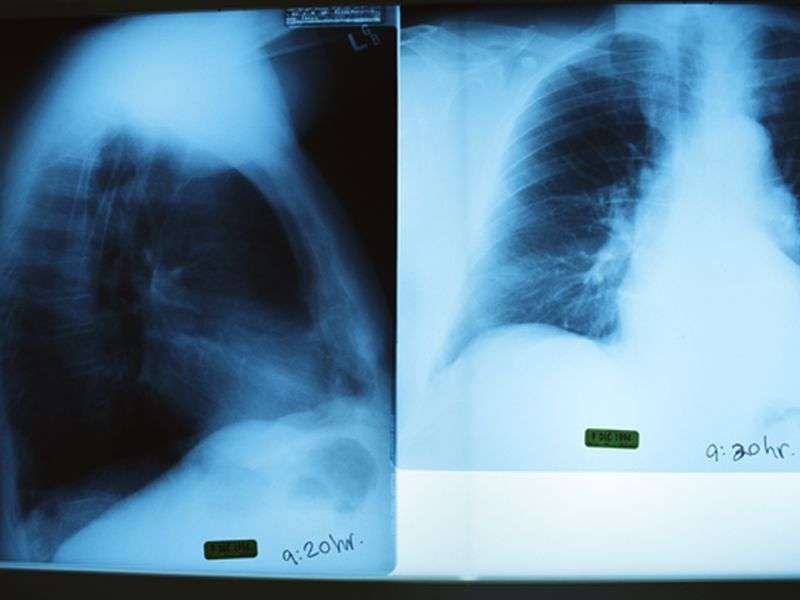Abnormal chest radiograph in active uveitis often sarcoidosis

(HealthDay)—Most patients with active uveitis of unknown origin with abnormal chest radiographs have findings consistent with sarcoidosis, according to a study published in the June 1 issue of the Annals of the American Thoracic Society.
Fahriye Groen, M.D., from the Erasmus Medical Center in Rotterdam, Netherlands, and colleagues conducted a retrospective cross-sectional study by reviewing all chest imaging for adults with new-onset uveitis of unknown origin. The authors related radiographic findings to clinical and other imaging characteristics.
The researchers found that 15 percent of the 200 patients included in the study had abnormal screening chest radiographs. Twenty-two patients (11 percent) had biopsy-confirmed sarcoidosis; 12 additional patients were presumed to have sarcoidosis. For biopsy-confirmed sarcoidosis, the finding of chest radiographic abnormalities interpreted as typical of sarcoidosis was specific, but not sensitive (91 and 64 percent, respectively). The sensitivity was increased to 79 percent with the combination of elevated serum angiotensin-converting enzyme level and chest radiographic findings typical of sarcoidosis. Patients with panuveitis more often had biopsy-confirmed sarcoidosis than those with other anatomical locations of uveitis (20 versus 4 percent).
"Our study shows that an abnormal chest radiograph was observed for 15 percent of 200 patients with active uveitis of unknown origin and of less than one year in duration," the authors write.
The study was partially funded by AbbVie.
More information:
Abstract
Full Text (subscription or payment may be required)
Copyright © 2017 HealthDay. All rights reserved.















